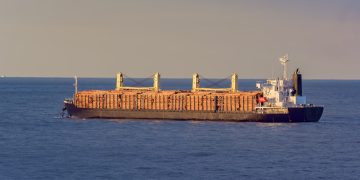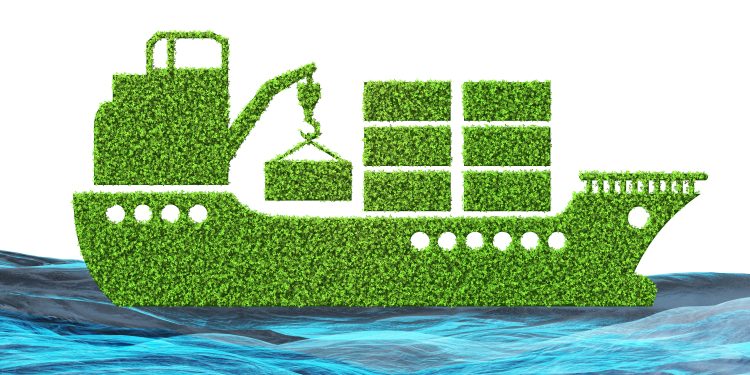During the 2022 GREEN4SEA Forum, Bill Stamatopoulos, Business Development Manager, VeriFuel, gave an overview of the benefits and challenges of biofuels in the marine sector, emphasizing that they are an indispensable stepping-stone towards decarbonization.
ISO 8217:2017, in Annex A, states that bio-derived fuels and blends of bio-derived fuels with petroleum products are included within the range of potential alternative energy sources being considered by some sections of marine industry since they are renewable and can result in reduced GHGs and SOx.
The first generation of biofuels was made from the sugar and vegetable oils found in food crops, using standard processing technologies. Due to high viscosity and high boiling point, the starch vegetable oils reduced the engine life span and damaged the engine lubricants. The second generation of biofuels was the so-called ‘processed biofuels’ manufactured from agricultural and forest residues and from non- food crop feedstocks. The third generation is specifically designed from engineered crops such as algae while the fourth generation uses genetically modified algae to enhance biofuel production. Hence, the fourth generation and the development of biofuels is rather impressive.
Benefits of biofuels
- A lot of successful trials since 2019
- Compatible with modern ship engines; require no retrofit making the switch an immediate feasible solution
- Limited safety risk versus zero carbon fuels
- Reduced emission factor, but this is depending on blend with fossil fuels
- Can use existing bunkering infrastructure
- Engine makers service letters in place
Last year, a paper from the Oxford Research Technical evaluated all alternative fuels and of course biofuels, in terms of the current technological and commercial readiness levels, concluding that biofuel get a 9 out of max 9 and a 2.9 out of max 9 accordingly.
The IMO so far considers CO2 emissions as Tank-to-Wake; however, it is expected to go to well to wake measure within lifetime of short term measures (CII). For EU, all biofuels in life-cycle perspective are accounted as zero.
Since everything is all about sustainability, all supplies and products should comply with the Renewable Energy Directive (RED) and the International Sustainability & Carbon Certification (ISCC) that set the following parameters:
- implementation of zero- deforestation
- protection of land with high biodiversity value & protection of soil, water and air
- compliance with human, labour and land rights
- measurement and reduction of GHG emissions
- traceability throughout supply chains
- ethics: biofuels must have no competition with food and no effect on wild life. Fields, forests and crops may be needed to meet other, more basic human needs.
With regards to biofuel quality, so far we have noticed lower sulphur content, good stability, low metals (especially Aluminum and Silicon), good cold-flow properties and a lower Net Calorific Value but better combustion performance that leads to fuel efficiency. From the trials, we know that combustion and engine condition is as usual and biofuels can stay stable at least 3 months of storage with clear condition of engine cylinders via scavenge drain analysis.
When it comes to NOx and biofuels, there are many discussions in place, questioning whether they are increasing their production or not. IACS submitted to IMO (MEPC 77) an interesting paper proposing a drat unified interpretation of reg.18.3 of MARPOL Annex VI, related to the use of biofuels. It highlighted the need to clarify the application of MARPOL Annex VI and the NTC for biofuels and blends. It essentially puts an an argument for fuel up to B30 to be considered as petroleum fuel oil as under Reg. 18.3.1. It puts in the discussion for B30 and B100 that if no critical engine settings have to be adjusted, there no emission testing would be required. This proposal will to be discussed during MEPC 78 in June 2022.
Biofuel challenges
Until biofuel use becomes widespread, it would be difficult to achieve a competitive cost; hence there is need for price incentives and logistics development. Technical and operational challenges (long term storage, corrosion risk for B80-B100, microbial growth risk) are both known and manageable. Other challenges relate to the different accounting principles (IMO/EU), competition from aviation and there are no clear results with regards to Nox emissions.
In order biofuel to move beyond the trial phase and scale up, there is need from support from governments, commitment of volume for the suppliers to secure feedstocks and an ISO specification for high blend biofuels (currently in progress). Though may never be the dominant fuel, biofuels are an indispensable stepping stone on the path to decarbonization.
Above article is a transcript text of Mr. Stamatopoulos presentation during 2022 GREEN4SEA Forum.
The views presented are only those of the author and do not necessarily reflect those of SAFETY4SEA and are for information sharing and discussion purposes only.































































